#valine
Text


Aminoacid Swag tournament Round 1
10 notes
·
View notes
Text
Table 24.2 gives pKa values for each ionisable group of the 20 protein-derived amino acids. (...) The isoelectric points for common amino acids are given in table 24.2.
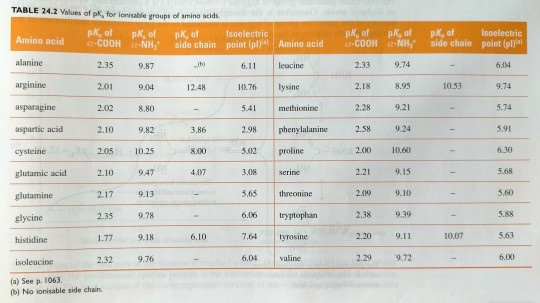
"Chemistry" 2e - Blackman, A., Bottle, S., Schmid, S., Mocerino, M., Wille, U.
#book quotes#chemistry#nonfiction#textbook#ionization#amino acid#alanine#arginine#asparagine#aspartic acid#cysteine#glutamic acid#glutamine#glycine#histidine#isoleucine#leucine#lysine#methionine#phenylalanine#proline#serine#threonine#tryptophan#tyrosine#valine#isoelectric
0 notes
Text
Valine: The Essential Amino Acid for Optimal Health and Performance

Did you know that a single amino acid can have a profound impact on your overall health and well-being?
One such vital component is Valine, an essential amino acid that plays a crucial role in maintaining overall health and wellness. Found in various protein-rich foods, Valine is an essential nutrient that our bodies cannot produce on their own.
Valine is not just any ordinary amino acid. It serves as a fundamental building block for protein synthesis, which is essential for growth, repair, and maintenance of tissues throughout the body. Valine also plays a significant role in energy production and supporting cognitive function. Without adequate Valine, our bodies would struggle to function optimally, impacting various aspects of our health.
Join us as we delve into the world of Valine, exploring its health benefits, dietary sources, potential deficiencies, and more. Discover why Valine is a vital nutrient that should not be overlooked when it comes to maintaining a healthy and balanced lifestyle.

Health Benefits of Valine
Valine is an essential amino acid that provides numerous health benefits. Let's explore how this vital nutrient supports various aspects of our well-being.
A. Essential amino acid
Valine is classified as an essential amino acid, meaning that our bodies cannot produce it naturally. Therefore, it is crucial to obtain Valine through dietary sources or supplementation. As one of the nine essential amino acids, Valine plays a fundamental role in maintaining overall health.
B. Muscle growth and repair
Valine is a key player in protein synthesis, which is vital for muscle growth and repair. When combined with other essential amino acids, Valine helps promote the development of lean muscle mass. It aids in the repair of damaged muscle tissues, making it particularly important for athletes and individuals engaged in regular exercise.
C. Energy production
Valine also contributes to energy production in the body. During intense physical activity, Valine can be broken down and converted into glucose, which serves as a primary energy source for our muscles. By supporting energy production, Valine helps enhance endurance and stamina, allowing us to perform at our best during physical exertion.
D. Cognitive function
Valine plays a role in maintaining optimal cognitive function. It is involved in the synthesis of neurotransmitters, such as dopamine and serotonin, which are essential for mood regulation, memory, and cognitive processes. Adequate Valine intake supports brain health and may contribute to improved mental clarity and focus.
E. Immune system support
Valine also plays a part in supporting a healthy immune system. It assists in the production of antibodies and immune cells, which defend the body against harmful pathogens and infections. By bolstering immune function, Valine helps to protect us from illness and promotes overall well-being.
Incorporating Valine into our diet or considering supplementation can provide these valuable health benefits. By ensuring sufficient intake of Valine, we can support muscle growth, enhance energy levels, maintain cognitive function, and strengthen our immune system.
Dietary Sources of Valine
A. Animal-based sources
- Lean meats: chicken, turkey, beef, pork
- Eggs
- Dairy products: milk, cheese, yogurt
- Fish and seafood

B. Plant-based sources
- Legumes: lentils, chickpeas, beans
- Whole grains: quinoa, brown rice, oats
- Nuts and seeds: almonds, peanuts, chia seeds, pumpkin seeds

C. Recommended daily intake
- The general guideline for adults is around 14 milligrams of Valine per kilogram of body weight.
- For example, a person weighing 70 kilograms would aim for a daily intake of approximately 980 milligrams of Valine.
Remember to consider individual requirements and consult with a healthcare professional or registered dietitian for personalized guidance on Valine intake.
Valine Deficiency and Symptoms
A. Causes of Valine deficiency
Valine deficiency can occur due to various factors. One common cause is an inadequate intake of protein-rich foods that contain Valine. Following a restrictive diet, such as a low-protein or imbalanced vegetarian diet, may increase the risk of Valine deficiency. Additionally, certain medical conditions or genetic disorders that impair amino acid metabolism can also lead to Valine deficiency.
B. Common symptoms and signs
When the body lacks sufficient Valine, it can manifest in various symptoms and signs. Common symptoms of Valine deficiency may include fatigue, muscle weakness, poor concentration, irritability, and delayed wound healing. Individuals with Valine deficiency may also experience a decrease in muscle mass and impaired muscle function.
C. Risks and complications
Prolonged Valine deficiency can have potential risks and complications. Insufficient Valine intake can hinder muscle growth and repair, leading to muscle wasting and increased susceptibility to injuries. Valine deficiency may also impact energy production, cognitive function, and immune system health, affecting overall well-being and performance.
It is important to address Valine deficiency promptly by adjusting the diet to include adequate sources of Valine or considering supplementation under the guidance of a healthcare professional. Regular monitoring and evaluation can help prevent long-term complications associated with Valine deficiency.
Supplementing with Valine
A. When to consider supplementation
Supplementing with Valine may be necessary in certain situations. Individuals who follow strict vegetarian or vegan diets that may be deficient in Valine-rich animal products might consider supplementation to ensure adequate intake. Athletes and individuals engaged in intense physical activity may also benefit from Valine supplementation to support muscle growth, repair, and enhance performance. Additionally, individuals with certain medical conditions or those recovering from injuries may require Valine supplementation to assist in the healing and recovery process.
B. Types of Valine supplements
Valine supplements are available in various forms, including capsules, tablets, powders, and liquids. These supplements typically contain isolated Valine or a combination of essential amino acids. It is important to choose high-quality supplements from reputable brands to ensure purity and potency.
C. Dosage and precautions
The appropriate dosage of Valine supplementation can vary depending on individual needs and circumstances. It is recommended to follow the instructions provided by the manufacturer or consult with a healthcare professional for personalized dosage guidance. It is important to note that excessive Valine intake can potentially disrupt the balance of other amino acids in the body, so it is essential to follow recommended dosages.
Individuals with pre-existing medical conditions, such as kidney or liver disease, should exercise caution when considering Valine supplementation, as it may affect their condition. Pregnant or breastfeeding women should also consult with their healthcare provider before starting any supplementation regimen.
Supplementing with Valine can be a beneficial strategy to ensure adequate intake, especially in specific circumstances where dietary sources may be limited. However, it is important to approach supplementation responsibly, seek professional guidance, and prioritize a balanced and varied diet as the primary source of Valine and other essential nutrients.
Valine and Exercise Performance
A. Importance of Valine for athletes
Valine plays a crucial role in supporting exercise performance, making it particularly important for athletes. As an essential amino acid, Valine is necessary for protein synthesis, which helps build and repair muscle tissues. Athletes require optimal muscle function and strength to excel in their chosen sports, and Valine contributes to these aspects of performance.
B. Valine's role in muscle recovery
After intense physical activity, the body undergoes muscle damage and breakdown. Valine aids in the repair and recovery process by providing the necessary building blocks for muscle tissue regeneration. By facilitating muscle recovery, Valine helps athletes bounce back faster and maintain optimal muscle health for subsequent training sessions.
C. Effects on endurance and stamina
Valine also impacts endurance and stamina during exercise. As an amino acid that can be converted into glucose, Valine serves as an additional energy source for muscles during prolonged physical exertion. This can delay the onset of fatigue and improve endurance, allowing athletes to perform at a higher level for longer durations.
By emphasizing the importance of Valine in exercise performance, understanding its role in muscle recovery, and recognizing its effects on endurance and stamina, athletes can optimize their training and overall performance. Adequate Valine intake through dietary sources or supplementation can be beneficial for athletes seeking to enhance their athletic abilities and maximize their potential.
Potential Side Effects and Interactions
A. Possible side effects of Valine supplementation
While Valine supplementation is generally considered safe when used appropriately, there are potential side effects to be aware of. Some individuals may experience gastrointestinal discomfort, such as bloating, nausea, or diarrhea when taking high doses of Valine supplements. It is recommended to start with lower doses and gradually increase as tolerated to minimize the risk of side effects. If any adverse reactions occur, it is advisable to discontinue use and consult with a healthcare professional.
B. Interactions with medications or medical conditions
Valine supplementation may interact with certain medications or medical conditions. Individuals taking medications or undergoing treatments that affect amino acid metabolism or require close monitoring of amino acid levels should exercise caution when considering Valine supplementation. Additionally, individuals with kidney or liver disease should consult with their healthcare provider before using Valine supplements, as impaired organ function can affect the body's ability to process amino acids properly.
It is always important to disclose all medications, supplements, and medical conditions to your healthcare provider to ensure safe and appropriate use of Valine supplements. They can provide personalized advice based on your specific situation and help prevent any potential interactions or complications.
By being aware of possible side effects and understanding potential interactions with medications or medical conditions, individuals can make informed decisions regarding Valine supplementation and ensure their safety and well-being.
Conclusion
Valine, an essential amino acid, offers several health benefits. It plays a vital role in protein synthesis, muscle repair, and overall muscle function. Valine is necessary for athletes to support exercise performance, muscle recovery, and endurance. It also aids in the healing process and promotes optimal muscle health.
While Valine can be obtained from both animal-based and plant-based sources, maintaining a balanced diet is crucial for overall health. Consuming a variety of foods ensures an adequate intake of Valine and other essential nutrients. It is important to include lean meats, dairy products, legumes, whole grains, nuts, and seeds in the diet to meet Valine requirements.
When considering Valine supplementation or addressing specific dietary needs, it is advisable to consult with a healthcare professional or registered dietitian. They can provide personalized guidance based on individual requirements, medical conditions, and potential interactions with medications. A healthcare professional can help determine the appropriate Valine intake, monitor overall health, and prevent any potential complications.
In conclusion, Valine is an essential amino acid that contributes to various aspects of health, particularly in relation to exercise performance and muscle recovery. By maintaining a balanced diet and seeking professional guidance, individuals can ensure optimal Valine intake and support their overall well-being.
FAQ
Why is Valine important for athletes? Valine is important for athletes because it is involved in protein synthesis, which helps build and repair muscle tissues. It also serves as an additional energy source during prolonged physical activity, enhancing endurance and stamina. Can I get enough Valine from a vegetarian or vegan diet? While Valine is more abundant in animal-based foods, it is still possible to get enough Valine from a well-planned vegetarian or vegan diet. Plant-based sources like legumes, whole grains, and nuts provide Valine, but it may require careful meal planning to ensure adequate intake. Can I take Valine supplements without consulting a healthcare professional? It is generally recommended to consult with a healthcare professional before starting any supplementation regimen, including Valine. They can assess your individual needs, provide guidance on dosage, and ensure its compatibility with your medical history and current medications. What are the signs of Valine deficiency? Signs of Valine deficiency may include fatigue, muscle weakness, poor concentration, irritability, and delayed wound healing. Individuals with Valine deficiency may also experience a decrease in muscle mass and impaired muscle function. Are there any risks or side effects associated with Valine supplementation? While Valine supplementation is generally safe when used appropriately, high doses may cause gastrointestinal discomfort, such as bloating, nausea, or diarrhea. It is important to start with lower doses and gradually increase as tolerated. Individuals with certain medical conditions or taking specific medications should exercise caution and consult with a healthcare professional before supplementing with Valine.
Read the full article
0 notes
Text
XXTRM OPTIMAL BCAAs 2:1:1 | GLUTAMINE | ELECTROLYTES (300G/0.66LB) | BOLT NUTRITION
XXTRM is An Amino Blast formula that contains GLUTAMINE, Optimal BCAAs ratio of 2:1:1 (Leucine, Isoleucine, and Valine) Plus Electrolyte blend a Performance driven Amino Blast Formula. You can fuel your workout with XXTRM Amino Blast which provides faster nutrient absorption into the bloodstream, hydration, and instant energy.
#BCAAs#glutamine#electrolyte#electrolytes#leucine#isoleucine#valine#glutamine powder#branched chain amino acids#bcaa amino acids#glutamine supplement#glutamine price#use of glutamine#electrolytes are#leucine amino acid#isoleucine amino acid#energy booster#energy boost#boost energy#energy boost supplement#stay hydrate#hydrated#keep yourself hydrated#keep hydrated#Muscle recovery#muscle recovery supplements#best muscle recovery supplements#intense workout#protein synthesis#muscle protein synthesis
0 notes
Photo

Hitting the weights real hard?? 👀 Pushing yourself toward that new PR? Time to reach for Enhanced Performance Nutrition's Intra Energy BCAA's. These amino acids are the key to preventing muscle breakdown after intense workouts. Branched-chain amino acids are the most important essential aminos for muscle recovery, growth, and increased performance. Take them before, during, or after your workout for fast absorption and a potent dose of recovery and strength. This refreshing drink is also great for all-day sipping to contribute to keeping your body in an anabolic state throughout the day. Key Ingredients L-Leucine L-Isoleucine L-Valine L-Glutamine Ep-Nutrition.com #bcaa #powder #dietary #supplement #preworkout #postworkout #leucine #valine #glutamine #weighttraining #weightlifting #intra #energy #epn #nutrition #aminoacids #intense #workouts #recovery #growth #buildmuscle #strength https://www.instagram.com/p/CmBDCL-O9Tg/?igshid=NGJjMDIxMWI=
#bcaa#powder#dietary#supplement#preworkout#postworkout#leucine#valine#glutamine#weighttraining#weightlifting#intra#energy#epn#nutrition#aminoacids#intense#workouts#recovery#growth#buildmuscle#strength
1 note
·
View note
Text


Found family
#ffxiv#final fantasy xiv#ff14#ffxiv gpose#ffxiv screenshots#thancred waters#thancred x wol#g'raha tia#urianger augurelt#estinien#alphinaud leveilleur#alisae leveilleur#y'shtola rhul#îm ok#this totally wasnt difficult to do through all these tears#NOPE#Man im so ready for Dawntrail yall#OC: Artemis Valin#wolcred#Yes i manually posed all 8 characters it took literally 5 hours to do thanks
337 notes
·
View notes
Photo

Valin Mattheis
1K notes
·
View notes
Photo

Strange Gods by Valin Mattheis
941 notes
·
View notes
Text

drawpile with homestuck and other ocs
#my art#homestuck#hom3stuck#bec noir#jade harley#woken void#cellee valine#chatri proyne#zuzie kuzu#azrielfiend [sona]#koyi shithed#homestuck fanart
53 notes
·
View notes
Note
would you draw valin per chance ?
I CAN!!
(i've been sick so sorry for the delay)


Extra under cut
I just think it'd be cute if Sophie and Valin met up some day as adults

54 notes
·
View notes
Text
It is found in the amino acids cysteine (Cys) and methionine (Met) (table 24.1, p. 1057) in which the sulfur-containing functional group is a thiol and thioether, respectively.
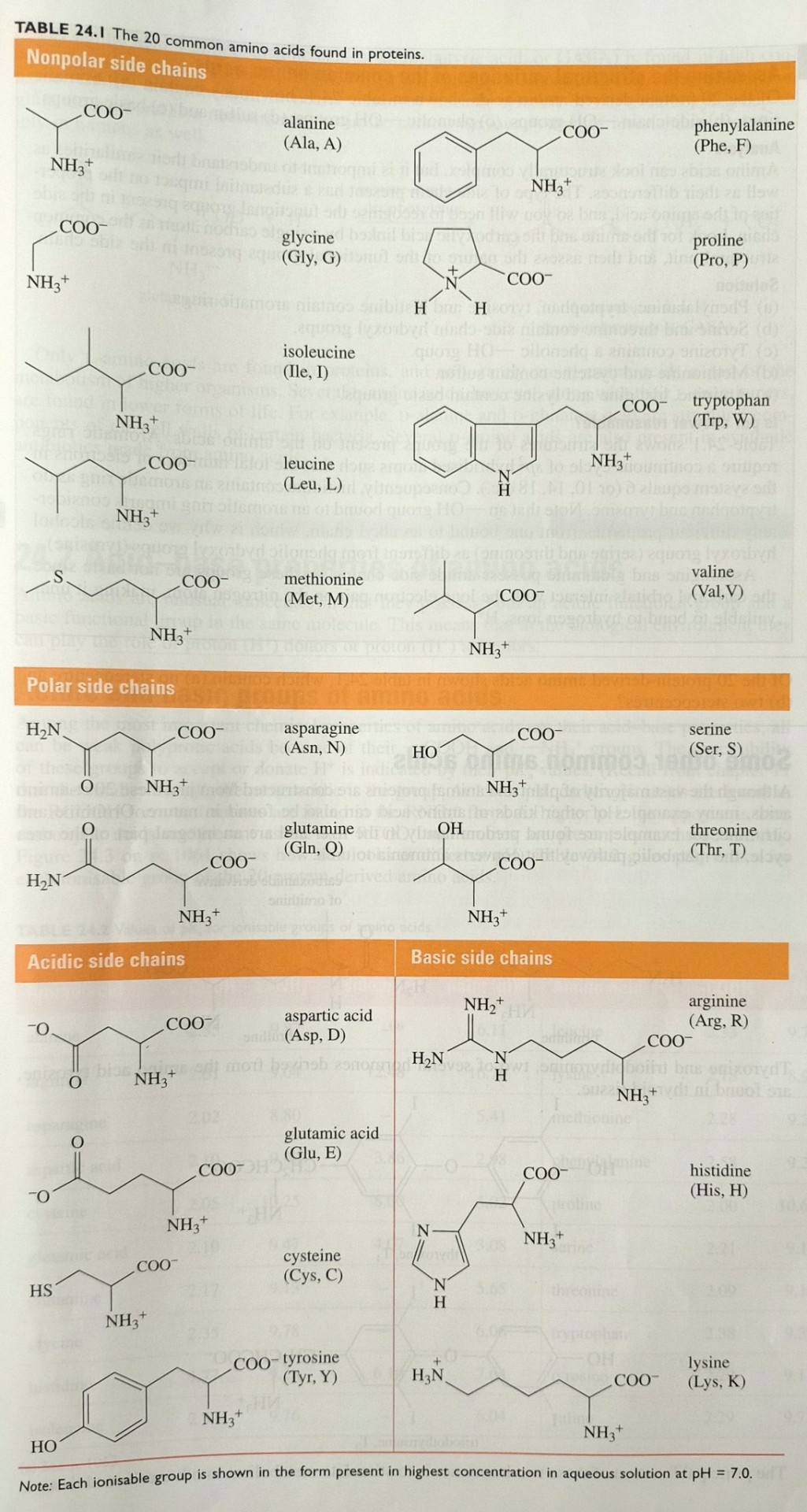
Table 24.1 gives common names, structural formulae and standard three-letter and one-letter abbreviations for the 20 common L-amino acids found in proteins.
"Chemistry" 2e - Blackman, A., Bottle, S., Schmid, S., Mocerino, M., Wille, U.
#book quotes#chemistry#nonfiction#textbook#amino acid#sulfur#thiol#thioether#alanine#glycine#isoleucine#leucine#methionine#phenylalanine#proline#tryptophan#valine#asparagine#glutamine#serine#threonine#aspartic acid#glutamic acid#cysteine#tyrosine#arginine#histidine#lysine
0 notes
Text
9 Essential Amino Acids: Definition, Benefits, and Food Sources

Do you know there are 9 essential amino acids that you need to obtain from the food you consume?
The 9 essential amino acids are:
- Histidine
- Isoleucine
- Leucine
- Lysine
- Methionine
- Phenylalanine
- Threonine
- Tryptophan
- Valine
These 9 essential amino acids are crucial for your body's functioning and cannot be produced internally. In this blog post, we will uncover their importance and the food sources that provide them. By understanding their significance and incorporating them into your diet, you can support overall health and well-being. Join us as we explore these essential nutrients and how they contribute to your body's optimal functioning.
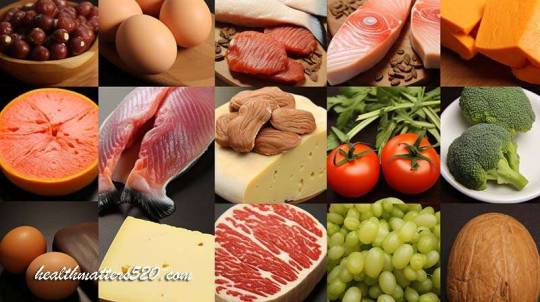
Understanding Amino Acids and Essential Amino Acids
Amino acids are the building blocks of proteins and play a vital role in numerous functions within your body. These small molecules combine to form proteins, which are essential for the structure, function, and regulation of tissues and organs.
There are 20 different amino acids that can be found in proteins. Among these, nine are classified as essential amino acids. Essential amino acids are crucial for your health because your body cannot produce them on its own. Therefore, it is necessary to obtain them from the food you consume.
Each of these essential amino acids plays a unique role in your body, supporting processes such as protein synthesis, tissue repair, and the production of important molecules like hormones and enzymes. By obtaining them from dietary sources, you ensure that your body has an adequate supply of these essential nutrients.
9 Essential Amino Acids
Histidine
Histidine is an essential amino acid that your body requires for optimal growth, tissue repair, and the production of histamine. Histamine is a compound involved in various physiological processes, including immune responses and digestion.
Histidine plays a vital role in promoting healthy growth and development, particularly during childhood and adolescence. It is involved in the synthesis of proteins that support tissue repair and maintenance. Additionally, histidine is necessary for the production of myelin, a protective substance that surrounds nerve cells and facilitates proper nerve impulse transmission.
One of the significant functions of histidine is its involvement in the production of histamine. Histamine acts as a chemical messenger in your body and is responsible for regulating immune responses, inflammatory reactions, and allergic responses. It plays a crucial role in triggering the body's defense mechanisms against harmful substances or pathogens.
Food sources rich in histidine:
- Meat (beef, poultry, pork)
- Fish (salmon, tuna, cod)
- Dairy products (milk, cheese, yogurt)
- Grains (wheat, rice, oats)

Incorporating histidine-rich foods into your diet ensures that your body receives an adequate supply of this essential amino acid. By doing so, you support optimal growth, tissue repair, and the proper functioning of your immune system and digestive processes.
Isoleucine
Isoleucine is an essential amino acid that plays a crucial role in energy production, muscle metabolism, and the regulation of blood sugar levels.
Energy Production: Isoleucine is involved in the process of converting nutrients into usable energy within your body. It plays a key role in the function of mitochondria, which are the powerhouses of your cells responsible for generating energy.
Muscle Metabolism: Isoleucine is particularly important for muscle growth, repair, and recovery. It helps stimulate protein synthesis, which is essential for building and maintaining lean muscle mass. Isoleucine also aids in the regulation of muscle metabolism, ensuring efficient use of nutrients for muscle function.
Regulation of Blood Sugar Levels: Isoleucine plays a role in regulating blood sugar levels by assisting in the uptake and utilization of glucose by cells. It is involved in insulin signaling, helping to enhance insulin sensitivity and maintain balanced blood sugar levels.
Food sources rich in isoleucine:
- Meat (beef, chicken, pork)
- Fish (salmon, tuna)
- Eggs
- Dairy products (milk, cheese, yogurt)
- Legumes (beans, lentils)
- Seeds (pumpkin seeds, sunflower seeds)

Including these isoleucine-rich foods in your diet can ensure an adequate supply of this essential amino acid. By doing so, you support energy production, muscle health, and proper regulation of blood sugar levels.
Leucine
Leucine is a vital amino acid that plays a key role in muscle protein synthesis, wound healing, and the regulation of blood sugar levels.
Muscle Protein Synthesis: Leucine is particularly important for promoting muscle growth, repair, and maintenance. It activates a pathway in your body called the mTOR pathway, which stimulates muscle protein synthesis. This process is crucial for building and preserving lean muscle mass.
Wound Healing: Leucine is involved in the healing of wounds and injuries. It contributes to the production of collagen, a protein that plays a critical role in the formation of new tissues and the repair of damaged ones. Adequate leucine levels are necessary for optimal wound healing and tissue regeneration.
Regulation of Blood Sugar Levels: Leucine also plays a role in the regulation of blood sugar levels. It helps enhance insulin secretion and sensitivity, promoting efficient glucose uptake by cells. This can contribute to better blood sugar control and overall metabolic health.
Food sources rich in leucine:
- Meat (beef, chicken, turkey)
- Poultry (chicken, turkey)
- Fish (salmon, tuna)
- Dairy products (milk, cheese, yogurt)
- Legumes (beans, lentils)
- Nuts (almonds, peanuts, cashews)

By incorporating these leucine-rich foods into your diet, you can ensure an adequate supply of this essential amino acid. This supports muscle protein synthesis, wound healing, and helps regulate blood sugar levels.
Lysine
Lysine is an essential amino acid that plays a crucial role in various aspects of your health, including collagen production, calcium absorption, and the synthesis of hormones, enzymes, and antibodies.
Collagen Production: Lysine is necessary for the synthesis of collagen, a structural protein that provides strength and support to your skin, bones, tendons, and other connective tissues. It helps maintain the integrity and elasticity of these tissues, promoting overall skin health and joint function.
Calcium Absorption: Lysine aids in the absorption of calcium, an essential mineral for strong bones and teeth. It helps transport calcium into cells and supports its utilization for bone formation and maintenance. Adequate lysine levels are important for optimal calcium absorption and utilization.
Synthesis of Hormones, Enzymes, and Antibodies: Lysine is involved in the synthesis of various important molecules in your body, including hormones, enzymes, and antibodies. Hormones are chemical messengers that regulate bodily functions, enzymes facilitate biochemical reactions, and antibodies are crucial for immune system function. Lysine contributes to the production of these molecules, supporting overall health and well-being.
Food sources rich in lysine:
- Meat (beef, chicken, pork)
- Poultry (chicken, turkey)
- Fish (salmon, tuna)
- Dairy products (milk, cheese, yogurt)
- Legumes (beans, lentils)
- Quinoa
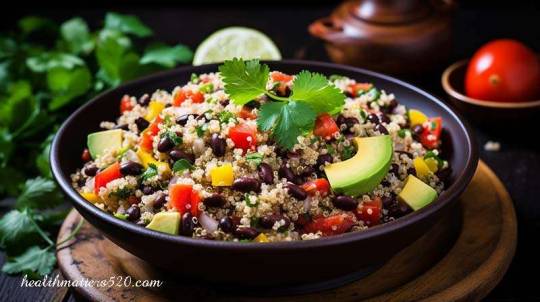
Incorporating lysine-rich foods into your diet helps ensure an adequate supply of this essential amino acid. This supports collagen production, calcium absorption, and the synthesis of hormones, enzymes, and antibodies.
Methionine
Methionine is an essential amino acid that serves as a building block for the synthesis of various essential molecules in your body. It plays a crucial role in the production of proteins, as well as the synthesis of other important molecules like glutathione, a powerful antioxidant, and key player in cellular detoxification processes.
Protein Synthesis: Methionine is necessary for the synthesis of proteins, which are vital for numerous biological functions. It provides the initial amino acid in protein chains, initiating the process of protein formation. This amino acid is particularly crucial for the synthesis of proteins involved in tissue repair, enzyme production, and hormone regulation.
Glutathione Synthesis and Detoxification: Methionine is required for the synthesis of glutathione, a potent antioxidant that helps protect cells from oxidative stress and supports the detoxification processes in your body. Glutathione aids in the elimination of harmful substances, such as heavy metals and toxins, from your system. Methionine's role in glutathione synthesis contributes to overall detoxification and cellular health.
Food sources rich in methionine:
- Meat (beef, chicken, lamb)
- Poultry (chicken, turkey)
- Fish (salmon, tuna, cod)
- Eggs
- Dairy products (milk, cheese, yogurt)
- Nuts (almonds, walnuts)

By including methionine-rich foods in your diet, you can ensure an adequate supply of this essential amino acid. This supports protein synthesis, glutathione production, and detoxification processes in your body.
Phenylalanine
Phenylalanine is an essential amino acid that serves as a precursor for the production of various neurotransmitters in your brain. It plays a crucial role in brain function, mood regulation, and the production of melanin, a pigment responsible for hair, skin, and eye color.
Neurotransmitter Production: Phenylalanine is involved in the synthesis of important neurotransmitters such as dopamine, norepinephrine, and epinephrine. These neurotransmitters are essential for regulating brain function, influencing mood, cognition, and overall mental well-being.
Mood Regulation: Phenylalanine's role in neurotransmitter production contributes to mood regulation. Dopamine, in particular, is associated with feelings of pleasure and reward. Adequate levels of phenylalanine are necessary for maintaining balanced neurotransmitter levels and supporting positive mood.
Production of Melanin: Phenylalanine also plays a role in the production of melanin, the pigment responsible for determining hair, skin, and eye color. Melanin provides protection against harmful ultraviolet (UV) radiation from the sun and helps maintain the integrity of your skin.
Food sources rich in phenylalanine:
- Meat (beef, chicken, pork)
- Poultry (chicken, turkey)
- Fish (salmon, tuna)
- Dairy products (milk, cheese, yogurt)
- Legumes (beans, lentils)
- Whole grains (wheat, rice, oats)

Incorporating phenylalanine-rich foods into your diet ensures an adequate supply of this essential amino acid. This supports neurotransmitter production, brain function, mood regulation, and the production of melanin.
Threonine
Threonine is an essential amino acid that plays a vital role in various aspects of your health, including protein synthesis, collagen production, and the maintenance of a healthy immune and digestive system.
Protein Synthesis: Threonine is an integral part of protein synthesis, contributing to the formation of new proteins in your body. Proteins are essential for numerous bodily functions, including the growth, repair, and maintenance of tissues and organs. Threonine ensures that your body has an adequate supply of this amino acid for efficient protein production.
Collagen Production: Threonine is also involved in the synthesis of collagen, the most abundant protein in your body. Collagen provides structural support to your skin, bones, tendons, and other connective tissues. Adequate threonine levels are necessary for the production of collagen, promoting skin elasticity, joint health, and overall tissue integrity.
Healthy Immune System: Threonine plays a role in maintaining a healthy immune system. It supports the production of antibodies, which are proteins that help your body fight against pathogens and foreign substances. Threonine is also involved in the production of immune cells, such as T-cells, which play a crucial role in immune response and defense against infections.
Digestive System Health: Threonine contributes to the maintenance of a healthy digestive system. It supports the production of mucin, a substance that helps protect and lubricate the lining of your digestive tract. Adequate threonine levels are important for maintaining the integrity of your gastrointestinal mucosa and promoting proper digestion and nutrient absorption.
Food sources rich in threonine:
- Meat (beef, chicken, pork)
- Poultry (chicken, turkey)
- Fish (salmon, tuna)
- Dairy products (milk, cheese, yogurt)
- Legumes (beans, lentils)
- Nuts (almonds, peanuts, cashews)

Incorporating threonine-rich foods into your diet ensures an adequate supply of this essential amino acid. This supports protein synthesis, collagen production, and the maintenance of a healthy immune and digestive system.
Tryptophan
Tryptophan is an essential amino acid that serves as a precursor for the production of serotonin, a neurotransmitter that plays a crucial role in regulating mood, sleep, and appetite. Additionally, tryptophan is involved in the synthesis of melatonin, a hormone that regulates sleep-wake cycles.
Serotonin Production: Tryptophan is a key building block for serotonin synthesis in the brain. Serotonin is known as the "feel-good" neurotransmitter and is involved in regulating mood, promoting feelings of well-being, and supporting mental health. Adequate levels of tryptophan are necessary to ensure sufficient serotonin production, which can positively influence mood and emotional balance.
Sleep Regulation: Tryptophan also contributes to the synthesis of melatonin, a hormone that helps regulate sleep-wake cycles. Melatonin plays a crucial role in promoting quality sleep and maintaining a healthy sleep pattern. Consuming tryptophan-rich foods can support the production of melatonin and promote better sleep quality.
Appetite Control: Serotonin, derived from tryptophan, is involved in appetite regulation. It helps regulate hunger and satiety signals, which can influence food intake and contribute to maintaining a healthy weight. Adequate tryptophan levels can support a balanced appetite and contribute to healthy eating habits.
Food sources rich in tryptophan:
- Poultry (chicken, turkey)
- Meat (beef, pork, lamb)
- Fish (salmon, tuna)
- Dairy products (milk, cheese, yogurt)
- Legumes (beans, lentils)
- Seeds (pumpkin seeds, sunflower seeds)

Incorporating tryptophan-rich foods into your diet can ensure an adequate supply of this essential amino acid. This supports serotonin production, mood regulation, sleep quality, and appetite control.
Valine
Valine is an essential amino acid that plays a significant role in muscle metabolism, tissue repair, and the maintenance of nitrogen balance in the body.
Muscle Metabolism: Valine is one of the branched-chain amino acids (BCAAs) that are particularly important for muscle health and function. It is involved in energy production and acts as a fuel source for muscles during intense physical activity. Valine helps maintain muscle strength and endurance, supporting optimal muscle metabolism.
Tissue Repair: Valine is crucial for tissue repair and recovery. It supports the synthesis of proteins involved in the growth and repair of various tissues, including muscles, tendons, and skin. Adequate valine levels are necessary for efficient tissue repair, especially after exercise or injury.
Nitrogen Balance: Valine aids in maintaining nitrogen balance in the body. Nitrogen is an essential component of amino acids and proteins. Valine helps ensure a healthy balance between protein breakdown and protein synthesis, which is crucial for overall protein metabolism and maintaining muscle mass.
Food sources rich in valine:
- Meat (beef, chicken, lamb)
- Poultry (chicken, turkey)
- Fish (salmon, tuna)
- Dairy products (milk, cheese, yogurt)
- Legumes (beans, lentils)
- Mushrooms
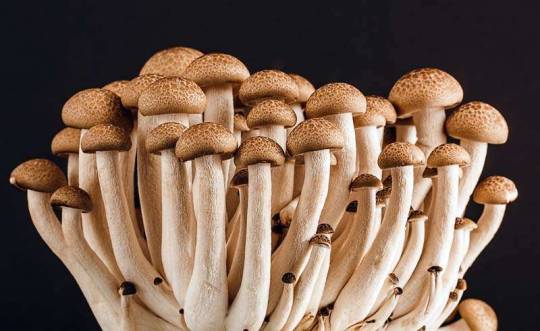
Incorporating valine-rich foods into your diet ensures an adequate supply of this essential amino acid. This supports muscle metabolism, tissue repair, and the maintenance of nitrogen balance in the body.
Complete Protein Sources
Getting all nine essential amino acids is important for maintaining optimal health and supporting various bodily functions. While some foods may lack certain essential amino acids, there are several complete protein sources that provide all nine amino acids in adequate amounts. Including these foods in your diet can ensure you meet your amino acid requirements:
Read the full article
#9EssentialAminoAcids#bloodsugarlevels#brain#callogenproduction#completeproteinsources#digestion#Histidine#immunesystem#muscle#Phenylalanine#Threonine#Tryptophan#Valine#vision
0 notes
Text
Discuss!
#star wars#poll time#star wars characters#a-z#v#w#val beckett#baron valen rudor#valin hess#wat tambor#watto#waxer#wedge antilles#wicket#wilhuff tarkin#commander wolffe#wooley#wrecker
63 notes
·
View notes
Text

Olivia Valin photographed by Miroslav Kovalenko
167 notes
·
View notes
Text

Valin by Simon Bolz , Paris , 2016
part 4 / 4 (part 1 , part 2 , part 3)
57 notes
·
View notes